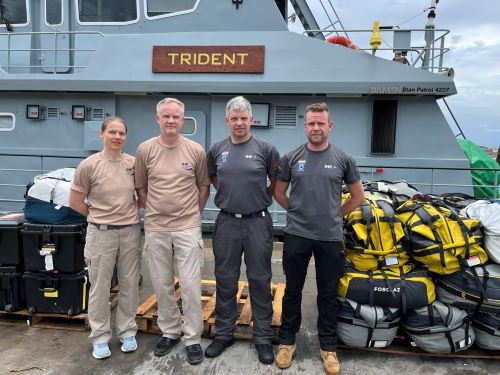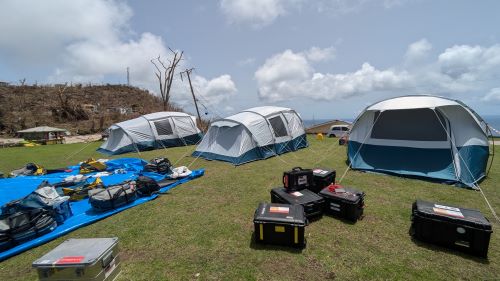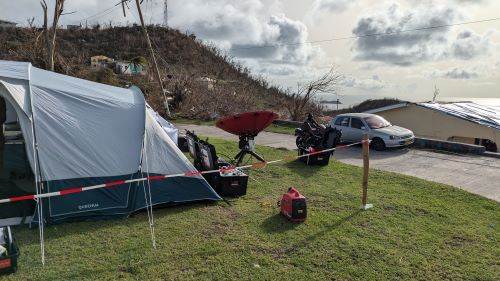IHP mobilizes to support the UNDAC operation in the Eastern Caribbean in the aftermath of Hurricane Beryl

In July 2024, Hurricane Beryl tore through the Caribbean, becoming the earliest Atlantic hurricane to reach Category 5 intensity. The storm left a trail of devastation across Saint Vincent and the Grenadines, Grenada, Dominica, Barbados, and Jamaica, destroying critical infrastructure, displacing thousands, and disrupting essential services.
As the region grappled with the aftermath, the International Humanitarian Partnership (IHP) mobilized a multi-country support team within just 12 hours of receiving an official request for assistance from OCHA/UNDAC. This rapid response underscored the effectiveness and agility of the IHP in supporting international disaster relief efforts.
A Coordinated, Rapid Deployment
Hurricane Beryl caused catastrophic damage in the affected areas, including the near-total destruction of infrastructure in Saint Vincent and the Grenadines, where 90% of buildings were damaged, and severe impacts in Grenada, where 95% of homes on Carriacou and Petite Martinique were rendered uninhabitable. The widespread devastation also included communication breakdowns and road blockages, severely hampering local response efforts.
Recognizing the urgency, the UN Disaster Assessment and Coordination (UNDAC) team requested IHP’s support. Within 12 hours of receiving the call, the IHP deployed experts from Luxembourg’s CGDIS, Norway’s DSB, Estonia’s ERB, and Germany’s THW to the region. This marked one of the fastest multi-country responses in the history of IHP, ensuring that critical assistance reached the ground when it was most needed.
Essential Support for a Challenging Environment
The IHP team’s primary mission was to support the UNDAC operation by providing Base Camp and Information and Communication Technology (ICT) solutions. In a region where nearly all communication infrastructure had been destroyed, the IHP’s ICT expertise proved invaluable. Satellite communication networks were quickly established, enabling effective coordination of logistics, damage assessments, and resource allocation.
Simultaneously, the Base Camp set up by the IHP offered a safe, operational environment for humanitarian personnel, facilitating coordination among local authorities, UN agencies, and other relief organizations. This secure hub was pivotal for managing emergency operations, including conducting detailed damage assessments and organizing aid distribution.
Strengthening the Humanitarian Response
Despite the immense challenges posed by Hurricane Beryl, the IHP’s rapid deployment and robust support significantly enhanced the efficiency of the emergency response. With the Base Camp and ICT infrastructure in place, the UNDAC team and other humanitarian actors were able to provide timely assistance to affected populations, restore communication lines, and prioritize recovery efforts.

